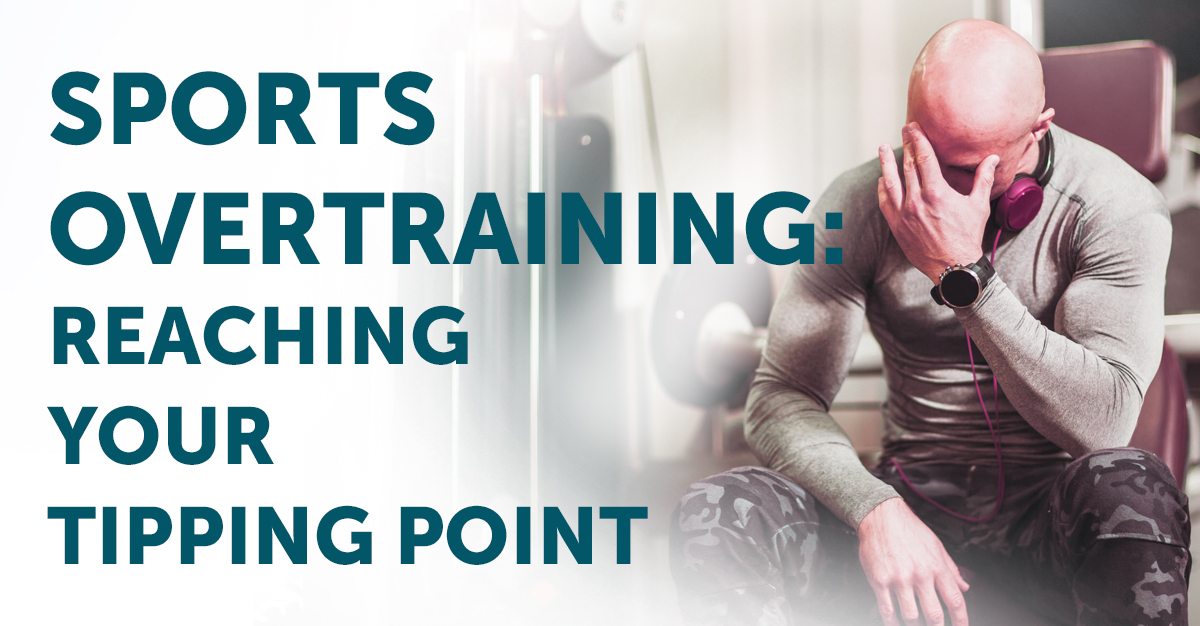
Pushing your body to be the best that it can be is a good thing that can yield great results, but sometimes going too heavy on your body’s odometer might be damaging for you in the long run and can even result in injuries that are detrimental to your fitness goals. Overtraining is doing too much, too often, and past the point of your body’s ability to recover quickly.
Since it’s always better to prevent an injury than to have to treat it after the fact, we thought it would be helpful to share signs you can look out for if you think you’ve reached your tipping point.
Signs and Symptoms of Sports Overtraining
- Persistent aches, pains, or muscle soreness
- Elevated resting heart rate
- Decreased agility, strength, endurance, and overall performance
- Increased susceptibility to infections
- Chronic or overuse injuries
- More frequent bouts of illness
- Feeling irritable, agitated, or depressed
- Loss of appetite or excessive thirst
- Headaches
- Excessive fatigue, sluggishness, or insomnia
- Becoming restless and losing focus
Although sometimes your body may not be able to keep up with the level of fitness you’d like to perform, it’s important to remember that there is a delicate balance between achieving optimal conditioning and overdoing it.
How to Avoid Sports Overtraining
- GET ENOUGH SLEEP – This is when our bodies rebuild & repair and our immune system recovers
- PROPER NUTRITION – Make sure to eat proper nutrients, including plenty of lean meats, fruits, and vegetables
- EXERCISE SMARTLY – Find a balance & avoid workouts that are too intense for you
- EASE INTO IT – Follow a structured plan that increases your activity incrementally and safely
- MONITOR STRESS LEVELS – Remember to breathe during any rigorous activity to remind your nervous system to keep your body calm
- PROPER RECOVERY TIME – Take one or two days between workout sessions or alternate intensity levels for each workout
- ACTIVE REST – Try less intense exercises such as yoga, stretching, or foam rolling
Even the healthiest of activities should be enjoyed in moderation. If you’re noticing that you’re feeling run down, your performance is suffering, you’re getting sick more often, and you keep getting injured, it’s time to change your routine. Take time off, dial back your intensity, cross-train to add variety once you’re adequately rested, and visit a physical therapist to deal with an injury.
